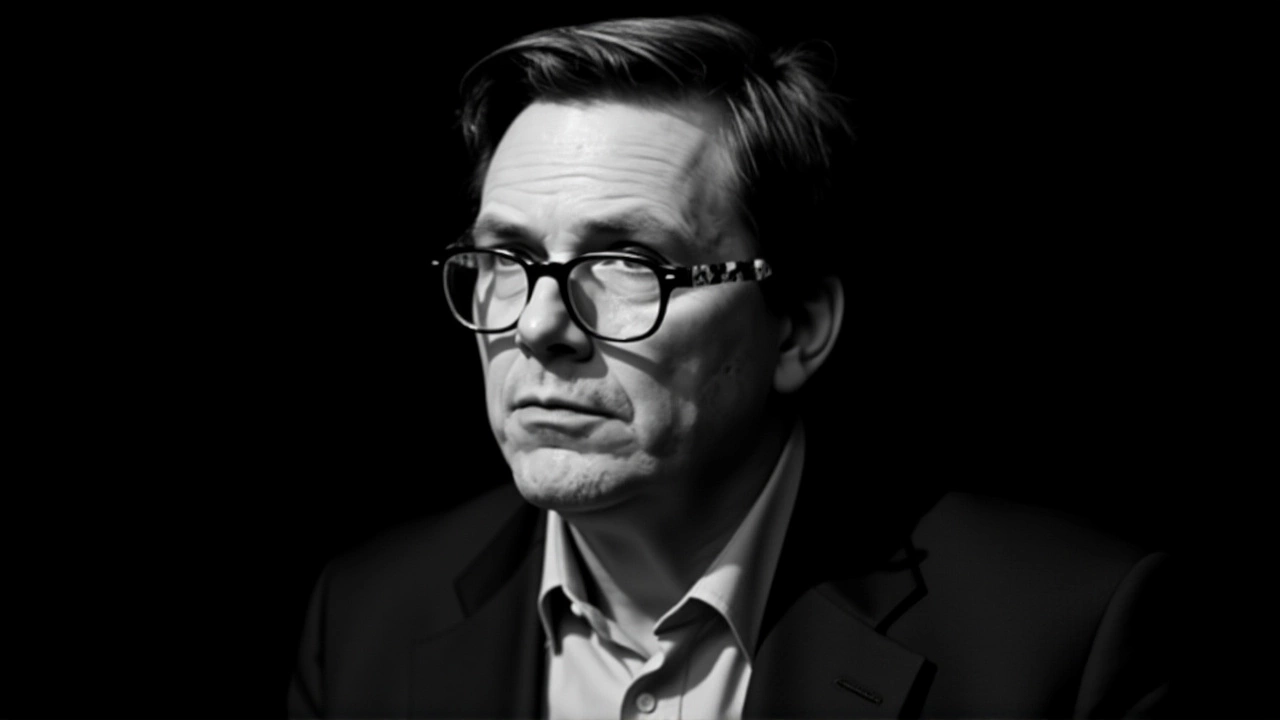On Wednesday, November 19, 2025, over 80 countries will observe International Men's Day under the theme 'Celebrating Men and Boys', marking what organizers call the most expansive global turnout in the observance’s history—with India hosting what the Indian Express calls "by far the single biggest celebration by any country in the global village." The day, coordinated by the International Men's Day Committee through internationalmensday.com, isn’t recognized by the United Nations, but its grassroots momentum is undeniable. This year’s centerpiece is a nine-hour live webcast running from 3:00 PM to midnight Australian Eastern Daylight Time (AEDT) in Sydney, featuring leaders from the global men’s movement sharing personal stories on mental health, fatherhood, and societal pressures.
Why November Matters: A Month of Male Awareness
November isn’t just about one day. It’s a 32-hour window of interconnected observances: Movember (the entire month dedicated to men’s health), Men’s Equality Month, and International Children’s Day on November 20. The International Men's Day Committee explicitly ties these together as a "collective reckoning with the masculine soul." The idea? Men don’t exist in isolation. Their struggles—loneliness, suicide risk, workplace pressure, emotional suppression—ripple outward. "If men are isolated, unhappy, and lonely, the world becomes more unsafe for women and other genders," noted one feminist scholar cited by the Indian Express. It’s not about blame. It’s about balance.
India’s Quiet Revolution
What makes 2025’s observance historic isn’t just the scale—it’s the origin. The Indian Express attributes the global rise of International Men's Day to an unnamed Indian woman who, over a decade ago, began organizing school events, community forums, and workplace workshops around men’s mental health. Her efforts, quietly amplified through local NGOs and civic leaders, eventually caught the attention of international organizers. Today, India’s celebrations include over 1,200 public events—from college campuses in Delhi to rural health camps in Odisha—where men are encouraged to speak openly about depression, divorce, and fatherhood. "We don’t need a parade," said Rajiv Mehta, a school counselor in Pune who’s organized IMD events since 2019. "We need spaces where a man can say, ‘I’m not okay,’ without being called weak."
The Webcast: A Global Conversation
The November 19 webcast, streaming from Sydney, will feature speakers from 14 countries, including educators, therapists, and former athletes. One confirmed participant is John Lund, whose YouTube channel UCM Iom posted a teaser video on the day of the event. While his official role remains unlisted, sources say he’ll speak on "redefining strength in the digital age." Registration, still open on the official site, requires no fee but demands a brief personal statement: "Why do you care about the men in your life?" Over 42,000 people have signed up so far, with 68% from outside Western nations. The International Men's Day Committee explicitly invites fathers, mentors, and health professionals—not just men—to join.
Historical Context: From Zero Suicide to Celebrating Boys
The themes tell a story. In 2022, the focus was "Helping Men and Boys." In 2023, it shifted to "Zero Male Suicide," a direct response to alarming WHO data showing men account for nearly 80% of global suicide deaths. In 2024, the emphasis turned to "Positive Male Role Models," acknowledging the void left by absent fathers and toxic media portrayals. This year’s theme—"Celebrating Men and Boys"—isn’t celebratory in a superficial sense. It’s reparative. "We’re not ignoring the pain," says Dr. Elena Torres, a gender psychologist in Toronto. "We’re saying: your pain matters, and your presence matters. You’re not a statistic. You’re a son, a brother, a friend."

Controversy and Criticism
Not everyone agrees. Critics, including some feminist groups, worry the day could be co-opted by anti-feminist movements. "There’s a fine line between recognizing men’s struggles and fueling a backlash," says Dr. Nia Patel, author of Gender in the Balance. "The danger isn’t the day itself—it’s who shows up to speak on it." The International Men's Day Committee has repeatedly condemned "women are the enemy" rhetoric, issuing a public statement in October 2025 affirming that "gender equity is not a zero-sum game." Still, the movement’s growth has drawn scrutiny. Brands like Nike and Unilever are now sponsoring events—a move some call "pinkwashing for men." Others say it’s long overdue. "For decades, we spent billions on women’s health campaigns," notes a 2025 lbbonline.com analysis. "Why are we still treating men’s mental health like an afterthought?"
What’s Next?
The International Men's Day Committee plans to submit a formal proposal to UNESCO in early 2026, seeking recognition as an official global observance. Meanwhile, India is already planning next year’s event as a 72-hour national dialogue, starting with school assemblies and ending with a live broadcast from the Taj Mahal. "We’re not asking for permission," says Aisha Khan, a community organizer in Mumbai who helped launch the first IMD event in Uttar Pradesh in 2018. "We’re building the table. And everyone’s invited."
Frequently Asked Questions
Why isn't International Men's Day recognized by the United Nations?
The United Nations has never formally recognized International Men's Day, despite its global participation in over 80 countries. Unlike International Women’s Day—which has UN backing since 1977—IMD remains a grassroots initiative. Critics argue the lack of recognition stems from institutional gender biases, while supporters say its decentralized, community-driven nature makes formal endorsement unnecessary. The International Men's Day Committee plans to petition UNESCO in 2026.
How does India’s celebration differ from other countries?
India’s IMD events are uniquely community-rooted, blending traditional values with modern mental health outreach. While Western nations often host panel discussions or corporate events, India’s observances include village-level health camps, school poetry contests on fatherhood, and temple-led counseling sessions. Over 1.2 million people participated in 2024, far exceeding any other country. The movement’s growth is credited to an unnamed Indian woman who started organizing local events over a decade ago, turning a niche idea into a national phenomenon.
What are the key issues International Men's Day aims to address?
The day focuses on male suicide prevention, emotional isolation, workplace stress, fatherhood challenges, and the stigma around seeking help. WHO data shows men die by suicide at nearly four times the rate of women globally. The 2023 theme, "Zero Male Suicide," reflected this crisis. In 2025, the shift to "Celebrating Men and Boys" signals a move from crisis response to long-term cultural change—emphasizing mentorship, emotional literacy, and positive role models in schools and families.
Is International Men's Day anti-feminist?
No—according to the International Men's Day Committee, which explicitly rejects "women are the enemy" rhetoric. Many feminists support the day, arguing that men’s mental health crises harm everyone. As one scholar noted, "When men are taught to suppress emotion, they become more prone to violence and isolation, which endangers women and children too." The goal is gender equity, not competition. The webcast includes female speakers, and registration is open to all genders.
Who is John Lund, and why is he involved?
John Lund, featured in a YouTube video uploaded by UCM Iom on November 19, 2025, is a mental health advocate and former college athlete who speaks on redefining masculinity in the digital age. Though his official title isn’t listed, sources indicate he leads youth programs in rural Australia and has worked with the International Men's Day Committee since 2022. His participation signals the growing involvement of younger generations in the movement, especially those who grew up seeing male mental health as taboo.
How can I participate if I’m not in Australia or India?
Registration for the November 19 webcast is free and open to anyone via internationalmensday.com. Participants receive a personalized viewing link and access to downloadable resources—discussion guides for schools, mental health checklists, and local event templates. Over 12,000 people from 63 countries registered in the last month alone. Even without attending the webcast, you can host a coffee chat, share a story on social media using #CelebratingMenAndBoys, or simply ask the men in your life: "How are you really doing?"
